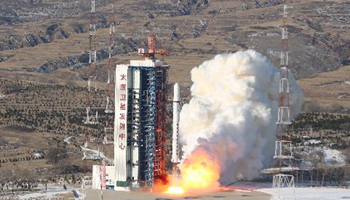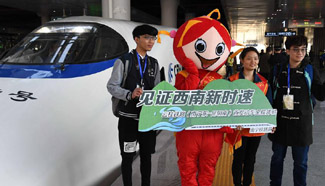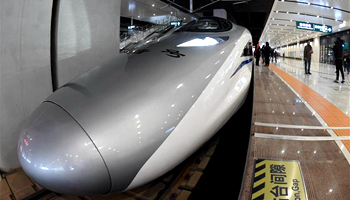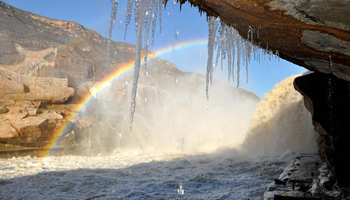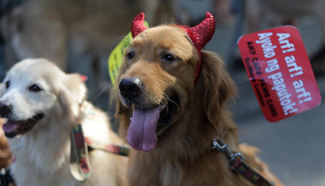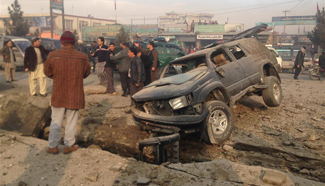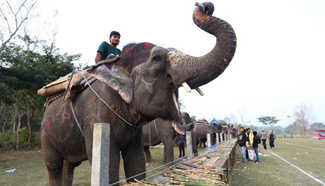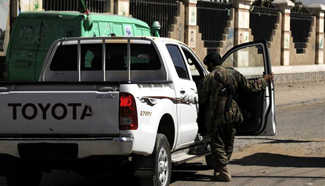by Peter Mertz, Cathy Gao
HONOLULU/DENVER, the United States, Dec. 27 (Xinhua) -- Japanese Prime Minister Shinzo Abe's remarks that his country "must never repeat the horrors of war again" did not resound well in America's Chinese community.
"Abe did not apologize for the attack," the Denver Post stated hours after the Japanese leader's much-ballyhooed speech at Pearl Harbor Monday, on the 75th anniversary of the site where Japanese bombers killed more than 2,400 unsuspecting Americans on Dec. 7, 1941.
Another unnerving fact of Abe's questioned sincerity was that Japanese media lied about his Hawaii trip for months in advance, saying he was the "first" Japanese prime minister to visit the bombing site since the attack 75 years ago.
And U.S. media adopted the Japanese erroneous "hype" until earlier this month, when the New York Times reported that three Japanese leaders had visited Pearl Harbor since World War II.
Ironically, just like Pearl Harbor, the Japanese had admitted no wrong.
Across America, Abe's "profound" Pearl Harbor remarks were dismissed by many of Chinese descent, who noted the Japanese leader's avoidance of saying, "we're sorry" to anyone.
"How long will the Japanese charade continue?" asked John Yee, a 95-year-old retired history professor in Denver.
"Abe throws out a few bread crumbs and expects everybody to genuflect," he told Xinhua Tuesday. "It's ridiculous."
Yee, a veteran of the Flying Tigers jet fighters squadron during World War II and composed of American volunteers, still remembers the day that Chinese newspapers reported Japanese troops had brutally executed more than300,000 civilians and war prisoners in Nanking, China in December 1937.
"They can't even apologize for killing 2,500 Americans, let alone millions of innocent Chinese women, children, the elderly, and unarmed men. And all Abe can regurgitate is something about the 'horrors of war?'" Yee asked.
"They created, defined and executed the 'Horrors of War,' and they can't even say, 'We're sorry?' It's pathetic," he said.
Quoting 19th century Spanish philosopher George Santayana, Yee, who taught Chinese history at the University of Colorado and the University of Denver in the 1960s, said, "Those who ignore history are condemned to repeat it."
In Hawaii, both Americans and Chinese-Americans were also dismissing Abe's "Big Apology."
"I think Japan needs to face up to history of what they did to so many countries," said G. Wong, 35, a Chinese language teacher.
"Hopefully one day, the Prime Minister of Japan can visit the Nanjing Massacre Memorial Hall in China to realize the tremendous pain it caused to China and other Asian countries and to learn from its mistakes, so that history does not repeat itself," Wong said.
Wong added that a visit would be historical event for both China and Japan.
"I also believe that Prime Minister Shinzo Abe should acknowledge and honor the other countries of World War II that fell victim to Japan's atrocities and militaristic aggression," Wong said.
Hide Takayama, a 26-year-old Japanese oversees student in Hawaii from Fukuoka, said it is important to understand what happened 75 years ago with Japan and the United States.
"I'm Japanese, so it's important to know the history." Takayama said. "I think the key is educating the next generation of students and to remember what happened here," he said.




